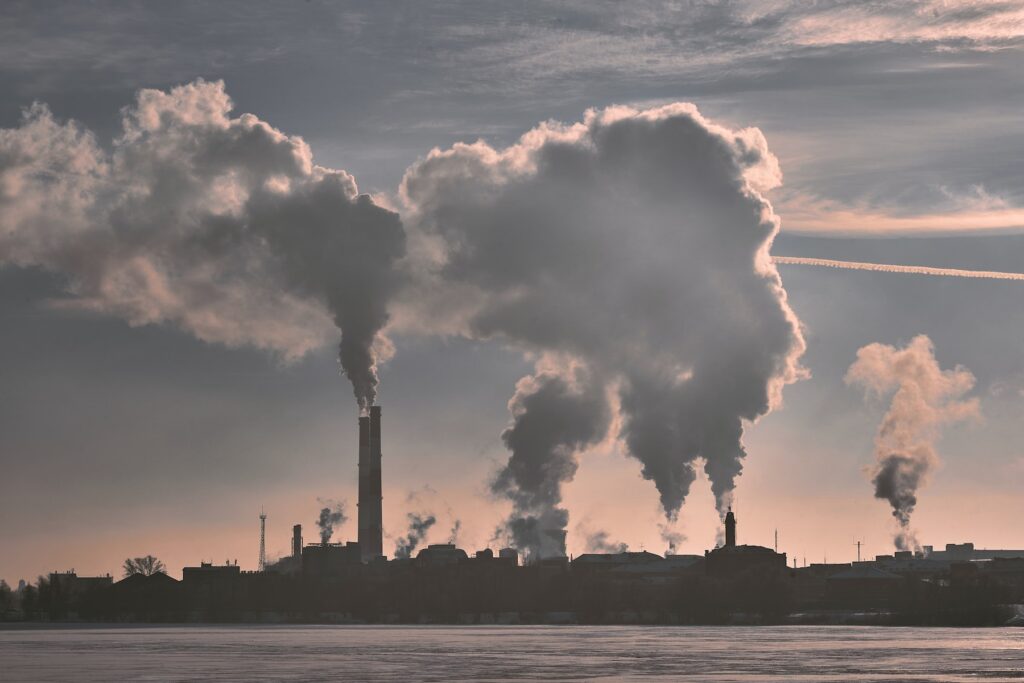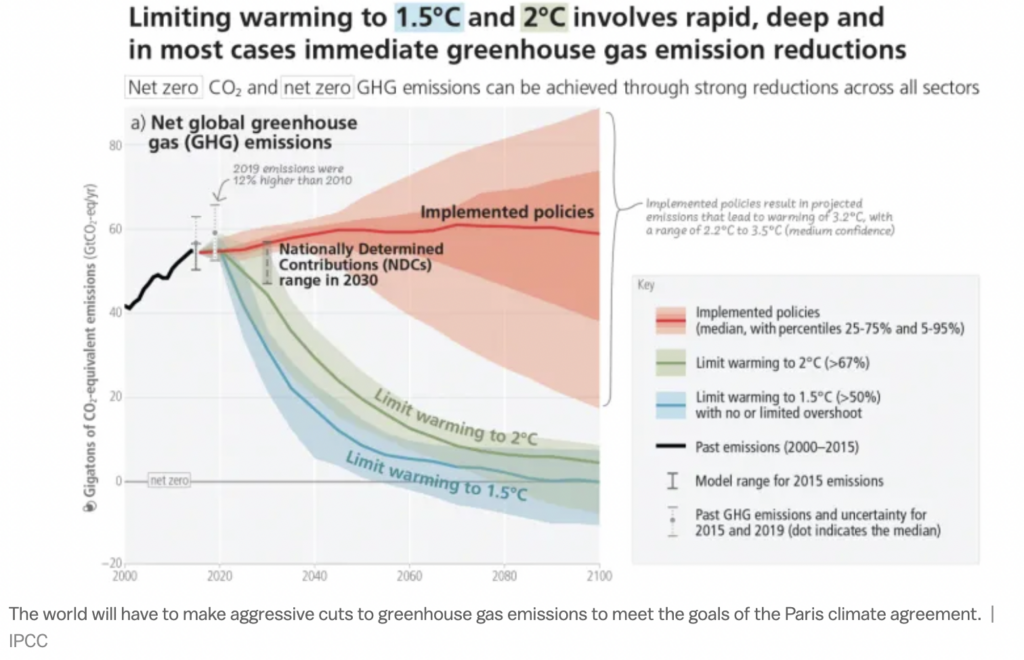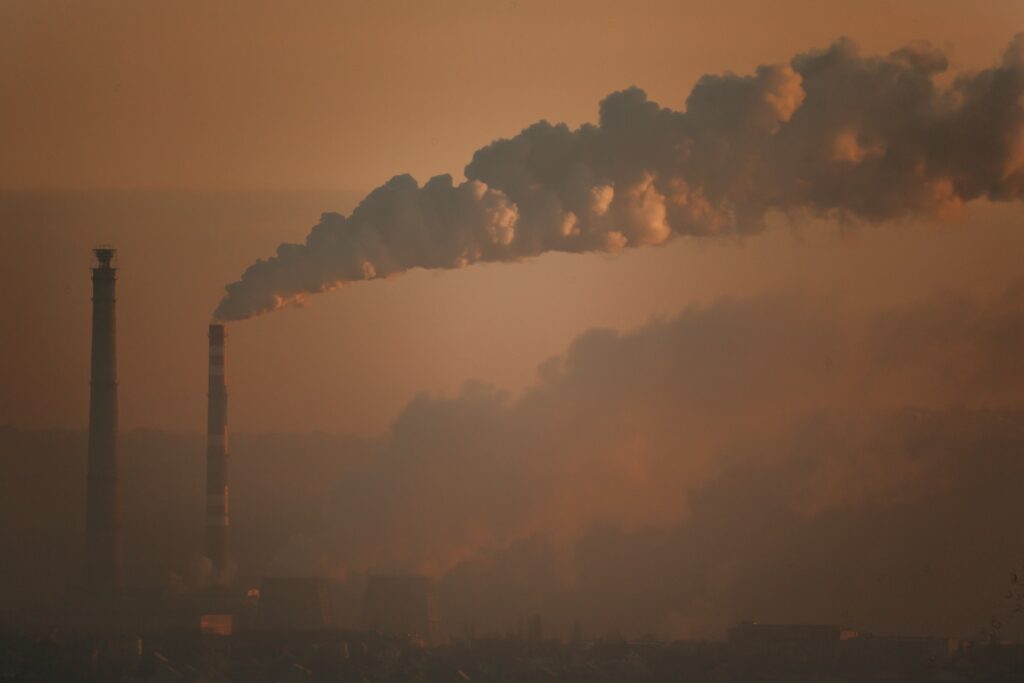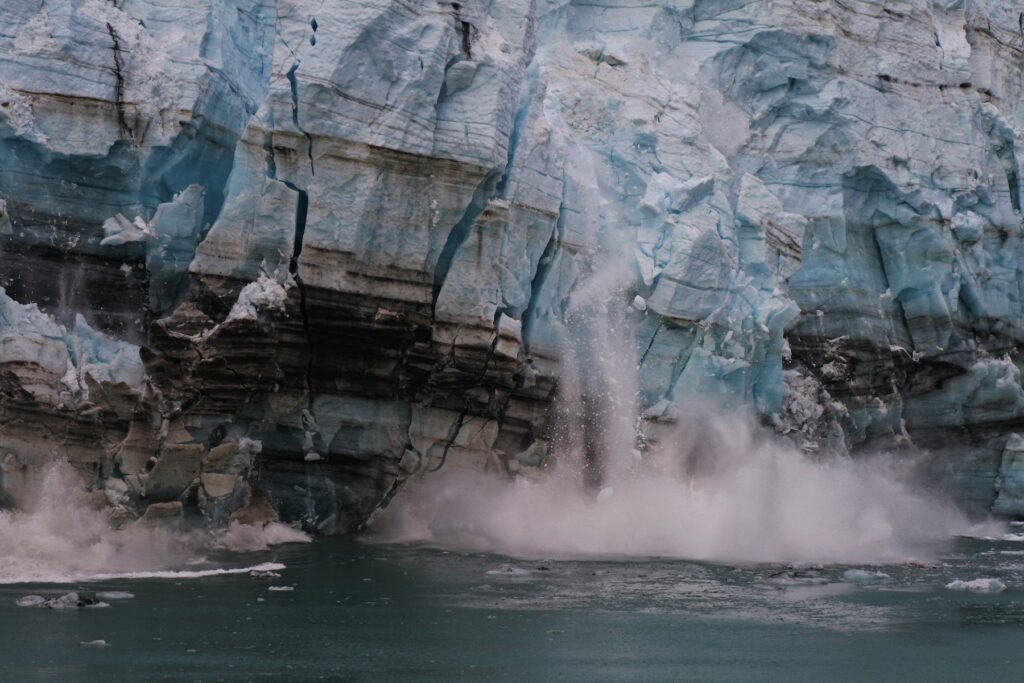Latest IPCC Report: How Worried Should We Be?

On Monday, March 21, the United Nations Intergovernmental Panel on Climate Change (IPCC) published the Synthesis Report to the Sixth Assessment Report. In short, this IPCC report brings together more than 1,000 scientists from around the world and six years of research to determine the likelihood of atmospheric warming as well as the impacts from different levels of climate change.
Perhaps unsurprisingly, the report was the direst yet. Here are the two main takeaways.
1) We Will Almost Certainly Overshoot 1.5 Degrees Celsius (2.7 Degrees Fahrenheit) of Warming

According to the report, global average temperatures are expected to rise 1.5 degrees Celsius (2.7 degrees Fahrenheit) above preindustrial levels sometime in the 2030s, even if we immediately stop adding emissions to the atmosphere.
The focus on 1.5 degrees Celsius stems from the 2015 Paris Climate Agreement, in which nearly every nation agreed to attempt to keep global warming under 1.5 degrees Celsius. Once past that threshold, scientists say the impacts of climate change (the heat waves, droughts, floods, crop failures, species loss, and intensifying storms that we are already seeing) become much more difficult, and much more expensive for people and governments to manage effectively.
We’ve already heated the earth 1.1 degrees Celsius since the industrial revolution, and atmospheric carbon concentrations are at a 2 million-year high, with temperatures already higher in the past 50 years than in the last 2,000. Clearly, staying below 1.5 degrees Celsius of warming is going to be a daunting task, requiring significantly more speed and ingenuity than if we’d started this task 50 years ago when we first understood the threat posed by climate change.
There does remain a small window of hope in keeping global average temperatures below 1.5 degrees Celsius, but it would require all industrialized countries to halve greenhouse gas emissions by 2030, and completely stop adding emissions to the atmosphere by 2050. And even then, there’s still a 50 percent chance of overshooting 1.5 degrees Celsius.
2) Fossil Fuel Projects Must Come to an End NOW

According to the IPCC report, existing and currently planned fossil fuel infrastructure will already produce enough greenhouse gas emissions to warm the planet roughly 2 degrees Celsius before 2100. While half of a degree may not seem like much, it’s the difference between tens of millions more people worldwide experiencing life-threatening climate disasters like heat waves, water shortages and coastal flooding. At 1.5 degrees, the world could still have coral reefs and summer Arctic sea ice. A 2-degree world most likely could not.
So to keep warming below catastrophic levels, many currently existing and planned fossil fuel projects would need to be canceled or retired immediately.
“Without a radical shift away from fossil fuels over the next few years, the world is certain to blow past the 1.5 C goal,” said Ani Dasgupta, president of the World Resources Institute, an environmental group. “The IPCC makes plain that continuing to build new unabated fossil fuel power plants would seal that fate.”

That brings Biden’s recent approval of ConocoPhillips’ Willow Project back to center stage — a project that would emit pollution over three decades equivalent to 76 coal-fired power plants running for a year and would serve as a “hub,” for ConocoPhillips to industrialize Alaska’s Arctic.
United Nations Secretary-General, António Guterres is setting strong conditions for participating in the Acceleration Agenda at the Climate Ambition Summit in September in New York including:
- No new coal and the phasing out of coal by 2030 in OECD countries and 2040 in all other countries.
- Ending all international public and private funding of coal.
- Ensuring net zero electricity generation by 2035 for all developed countries and 2040 for the rest of the world.
- Ceasing all licensing or funding of new oil and gas – consistent with the findings of the International Energy Agency.
- Stopping any expansion of existing oil and gas reserves.
- Shifting subsidies from fossil fuels to a just energy transition.
- Establishing a global phase down of existing oil and gas production compatible with the 2050 global net zero target.
Approving the Willow Project puts the U.S. at risk of being shut out of further climate diplomacy and negotiations and continues to push us further away from actually becoming leaders in the fight against climate change.
This IPCC report makes it clear that we must leave fossil fuel reserves unburned. Now is not the time to drill for new oil and gas. In fact, the report demonstrates that some ecosystems are approaching irreversibility, “such as the impacts of hydrological changes resulting from the retreat of glaciers, or the changes in some mountain and Arctic ecosystems driven by permafrost thaw.”
Similar research shows that after a dramatic drop in 2007, Arctic sea ice has never recovered. It is becoming more unstable, tending to be thinner, weaker and more prone to melting. 2022’s Arctic sea ice maximum was the fifth lowest on record.
“By the end of COP28, I count on all G20 leaders to have committed to ambitious new economy-wide nationally determined contributions encompassing all greenhouse gases and indicating their absolute emissions cuts targets for 2035 and 2040,” said UN Secretary-General, António Guterres. “The transition must cover the entire economy. Partial pledges won’t cut it.”
What Happens Next?
Alaska has an incredibly large network of intact public lands that can help mitigate climate impacts. Through our work to protect the Western Arctic, the Arctic Refuge, and public lands all the way down through the Tongass National Forest, we can help meet the recommendations of the latest IPCC report by continuing to fight and prevent oil and gas development in these critical places. Together, we can leverage Alaska’s wild landscapes to safeguard our climate and preserve this irreplaceable gift of nature for generations to come.
Further Reading
https://report.ipcc.ch/ar6syr/pdf/IPCC_AR6_SYR_SPM.pdf
https://www.nature.com/articles/s41586-022-05686-x
https://www.vox.com/climate/23648274/climate-change-report-ipcc-ar6-warming-overshoot
https://www.nytimes.com/2023/03/20/climate/global-warming-ipcc-earth.html
https://www.utilitydive.com/news/global-warming-ipcc-paris-climate-agreement/645529/
